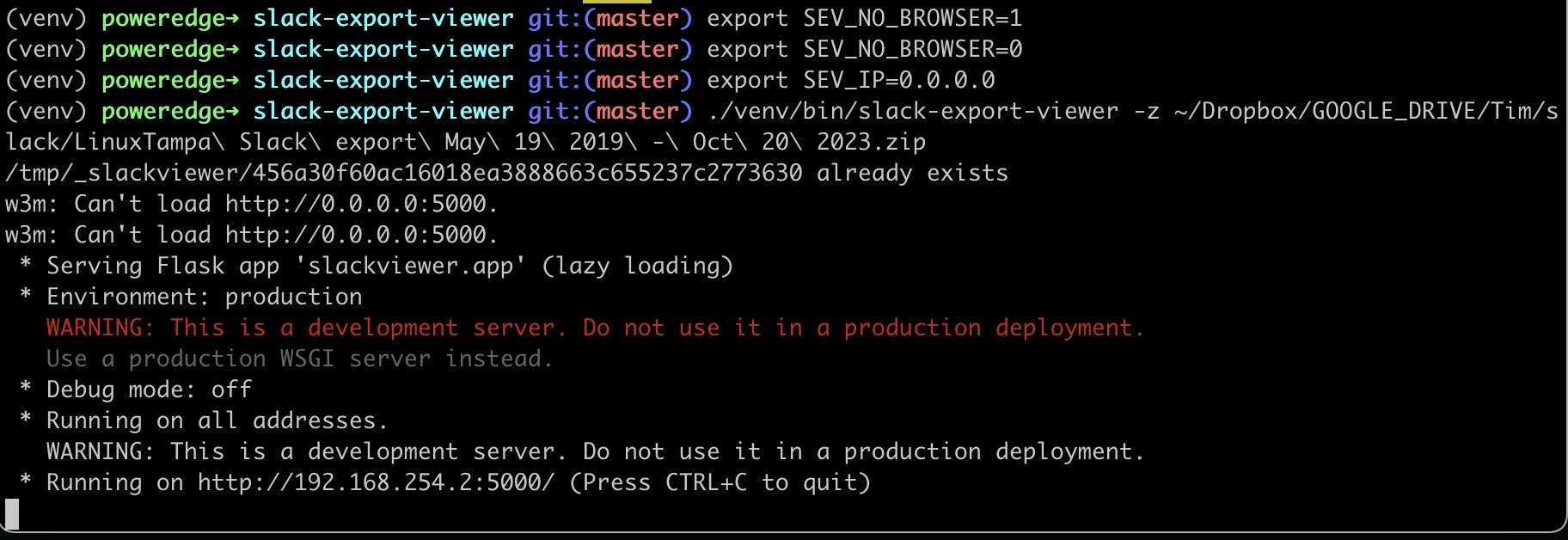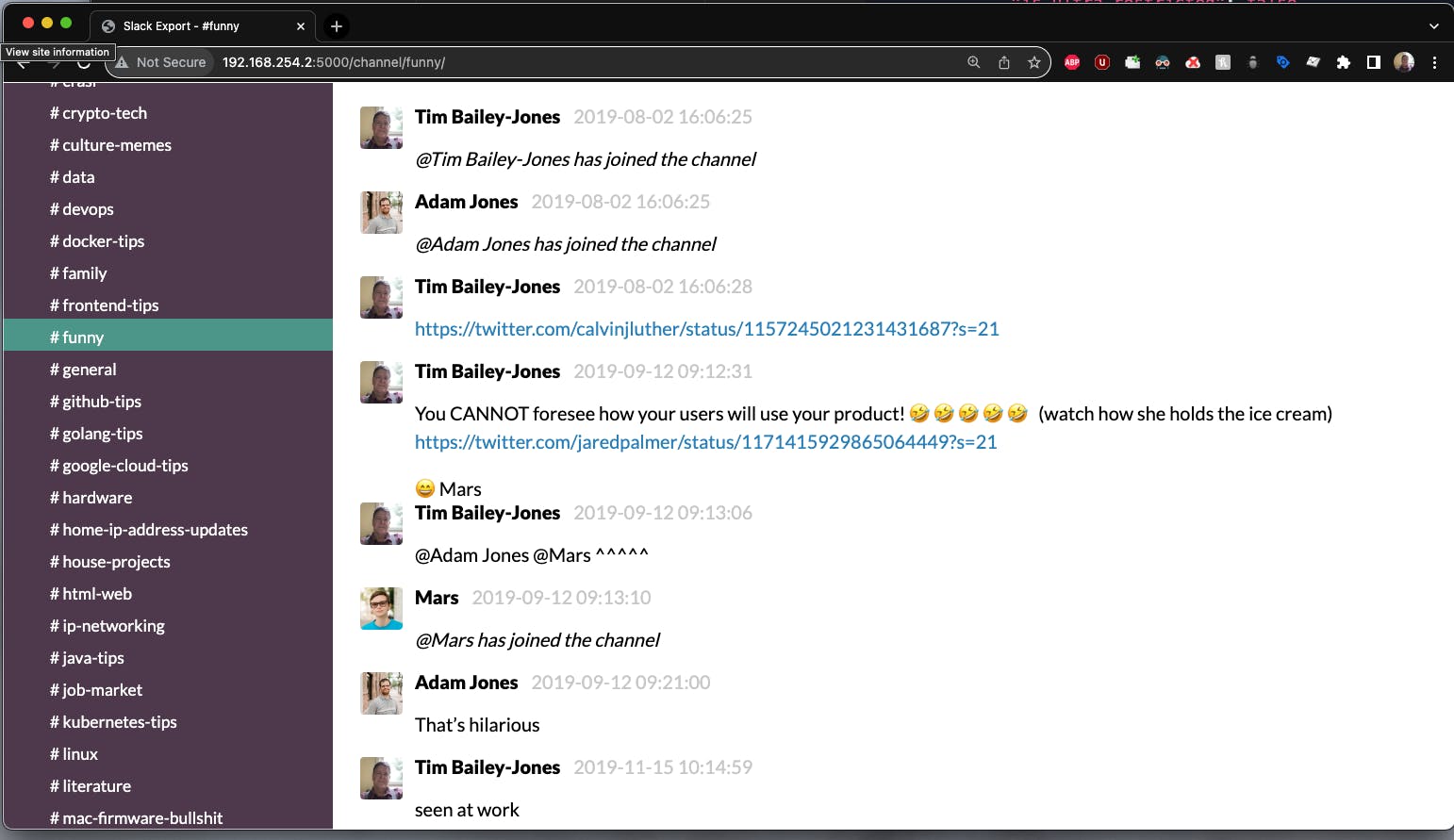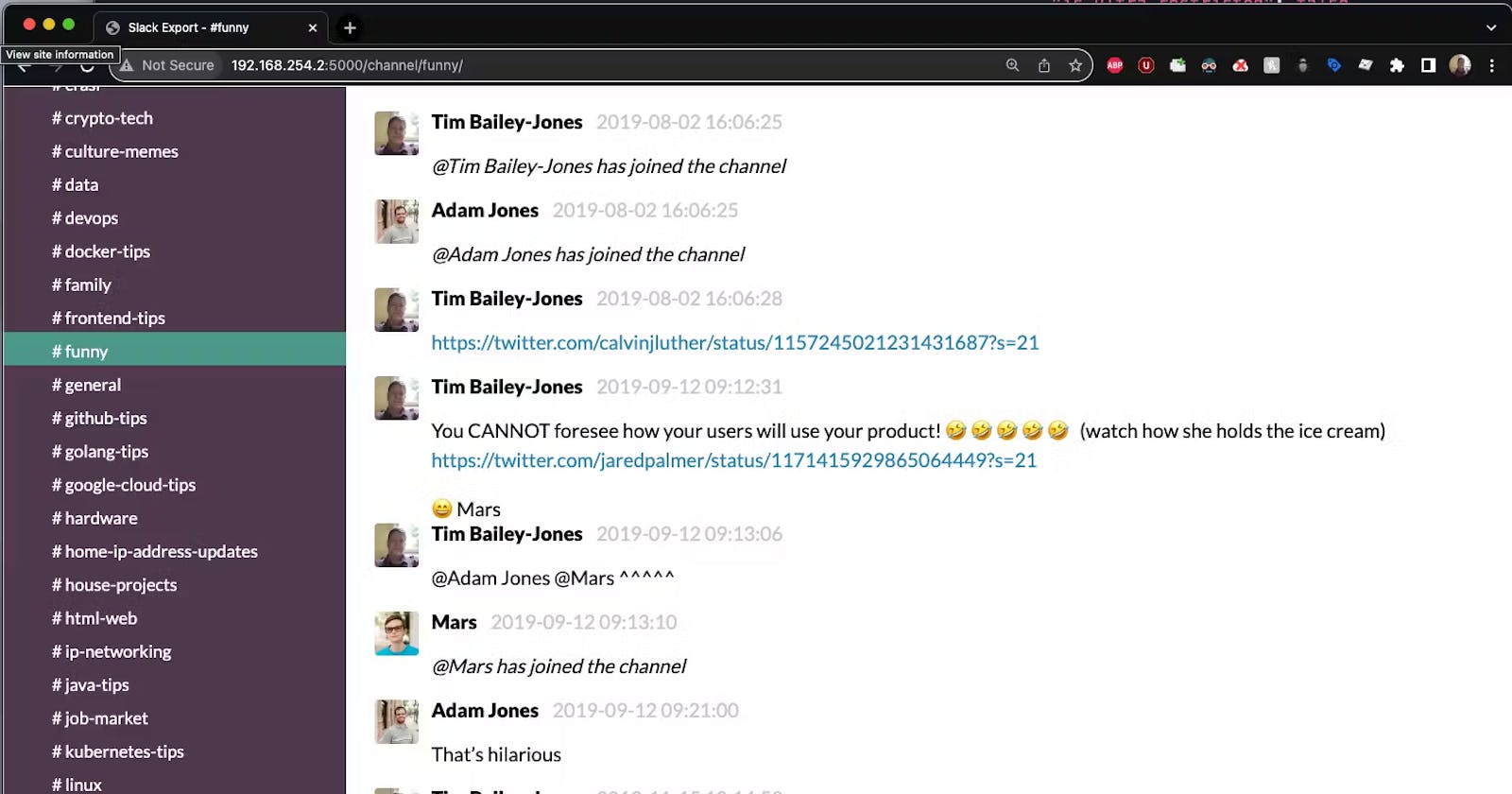Slack used to be pretty useful for trading links with your friends. Unless you had more than 10,000 messages, it was fine. But at some point, the free plan got bumped down to 90 days only, and that was a pretty rotten move for low-volume personal chat rooms.
Slack has had a way to export data to a ZIP file containing messages, and it works exactly as described. The files inside the ZIP file are arranged by subdirectory and date. Here's a sample of what was in my export file.
$ slack-export-viewer git:(master) unzip -v '/home/tim/Dropbox/./GOOGLE_DRIVE/Tim/slack/LinuxTampa Slack export May 19 2019 - Oct 20 2023.zip'
Archive: /home/tim/Dropbox/./GOOGLE_DRIVE/Tim/slack/LinuxTampa Slack export May 19 2019 - Oct 20 2023.zip
Length Method Size Cmpr Date Time CRC-32 Name
-------- ------ ------- ---- ---------- ----- -------- ----
0 Stored 0 0% 2023-10-20 16:33 00000000 funny/
7443 Defl:N 1677 78% 2023-10-20 16:33 539e36fe funny/2022-06-28.json
3043 Defl:N 755 75% 2023-10-20 16:33 a7687500 funny/2022-10-26.json
1499 Defl:N 534 64% 2023-10-20 16:33 2d477609 aws-announcements/2023-05-15.json
3171 Defl:N 701 78% 2023-10-20 16:33 a9a37985 aws-announcements/2019-06-20.json
2106 Defl:N 632 70% 2023-10-20 16:33 a4c17ead mac-tips/2019-09-09.json
3927 Defl:N 1092 72% 2023-10-20 16:33 928798db career-advice/2022-07-25.json
10035 Defl:N 3575 64% 2023-10-20 16:33 fe2c672b career-advice/2022-01-28.json
...
$
But after you extract the file and explore the JSON files, you realize this isn't the most readable thing in the world:
[
{
"type": "message",
"subtype": "channel_join",
"ts": "1569464732.000200",
"user": "UJVMHTQ0P",
"text": "<@UJVMHTQ0P> has joined the channel"
},
{
"client_msg_id": "3c9dce9b-62ea-4b66-ae0c-2af4eb2bf8cd",
"type": "message",
"text": "<https:\/\/github.com\/lukesampson\/scoop> - brew-like package manager for windoze",
"user": "UJVMHTQ0P",
"ts": "1569464741.000500",
"blocks": [
{
"type": "rich_text",
"block_id": "1Jg22",
"elements": [
{
"type": "rich_text_section",
"elements": [
{
"type": "link",
"url": "https:\/\/github.com\/lukesampson\/scoop"
},
{
"type": "text",
"text": " - brew-like package manager for windoze"
}
]
}
]
}
],
"team": "TJTSLFV96",
"user_team": "TJTSLFV96",
"source_team": "TJTSLFV96",
"user_profile": {
"avatar_hash": "g31217e9626b",
"image_72": "https:\/\/secure.gravatar.com\/avatar\/e931217e9626bfe1e978c24c5984e40a.jpg?s=72&d=https%3A%2F%2Fa.slack-edge.com%2Fdf10d%2Fimg%2Favatars%2Fava_0020-72.png",
"first_name": "Tim",
"real_name": "Tim Bailey-Jones",
"display_name": "",
"team": "TJTSLFV96",
"name": "tim",
"is_restricted": false,
"is_ultra_restricted": false
}
}
...
]
Enter slack-export-viewer on github.com. It provides a webserver listening on port 5000 that provides a reasonable approximation of the real Slack Web user interface.

And here's the results. Perfectly browsable message history. I'm going to mine it for blog post ideas.

MISSION ACCOMPLISHED!
I had to issue a small PR pinning the Werkzeug and Flask libraries to the latest 2.x versions, because those libraries' 3.x have breaking changes. The maintainer merged it quickly, and now it works out of the box again!

